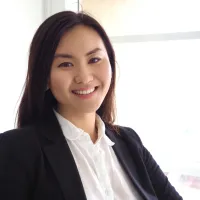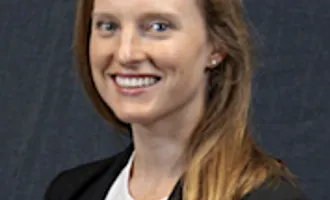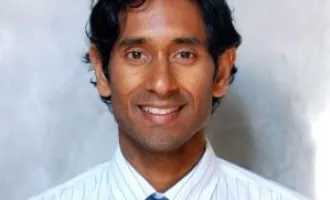
The First Time
Editor's note: Sikai Song's "The First Time" is the first place winner of the Synapse Storytelling Contest's personal essay category.
I was petrified my first time, my heart stuck in my throat.
It was organized chaos. I stood in the corner in awe as I watched others take turns cracking sternum, shouting orders, pushing drugs. I remember all the residents, the nurses, the respiratory therapists, and the pharmacists, everyone with their expert hands flying instinctively to grab the next magical instrument to bring the patient back to life. To the untrained eyes, they were like gods- omniscient, extraordinary beings passing an endotracheal tube, 16g IV needles, the Elixir of Life. Mjölnir. Fairy dust. Anything and everything I didn’t understand at the time.
I believed so naively in the power of medicine back then, it never occurred to me that it wouldn’t be enough. What did I know about medical emergencies, or death even? It was my surgery core clerkship, the fourth rotation of my 3rdyear of medical school. I was on a 24-hr call and had never seen a code before in my life, but I swallowed my imposter syndrome and pushed it deep into the dark recesses of my stomach. I tried to make my body small and invisible, to be as less of a nuisance as I possibly could be. I observed quietly as others tried to stabilize the patient, constantly scanning the monitors for signs of improvement. Our collective breath bated.
And as quickly as the code was called, it was over.
A moment of silence followed.
The pounding of blood through my ears.
The large crowd that had so urgently assembled crumbled away within seconds, reabsorbed once again to the furthest corners of the hospital. Someone left to notify the family and take care of paperwork. A few nurses stayed back to clean up the scene. Everyone went back to the normal shuffling of duties.
Afterwards, I wandered the hallways numbly, struggling to process what had just happened. I didn’t know how to feel, much less what to think. I hadn’t known the patient very well, only the quick sign-out from the admitting team and a few more details about their past medical history uncovered by the resident on call. A one-liner, essentially, was all that I knew about the patient. By then, I had taken care of other patients who had eventually passed and had only been peripherally involved with the care of this particular patient.
So why did I feel so utterly devastated?
~~~~~~~~~~~~~~~~~~~~~~~~~~~~~~~~~~~~~~~~~~~~~~~~~~~~~~~~~~~~~~~~~~~~~~~~
I will never forget the kindness you showed me later that night.
It was 2AM already when you asked me, “Do you want to go outside?”
“Yes”, I choked gratefully.
We grabbed our jackets and retreated to a balcony outside. A couple of other residents joined us, taking advantage of the rare, brief lull in the work flow. The polite small talk disappeared as soon as we stepped outside into that cool July night. Strangers only weeks ago, we stared jointly into the dark abyss of the night sky. Silently, we mourned the loss of that patient: a human being with feelings, dreams, hopes, and fears. It didn’t matter that none of us knew the patient well.
You placed a quiet hand on my shoulder. I wanted to explain myself, but I couldn’t; the words wouldn’t fit in between the sobs. And besides, what was there to say? It seemed like you already understood. I cried out all that I felt earlier but couldn’t explain. Life felt so simultaneously monumental and fleeting.
After a few minutes, you whispered to me, “My first time was hard too.” The other residents nodded and agreed, murmuring words of affirmation and support.
We stood there for another few minutes contemplating the fragility of human life, the inevitability of death, and the limitations of medicine. All the times it wasn’t enough. In many ways, it was comforting realizing that we didn’t need to be perfect. And on that quiet little balcony, surrounded by almost-strangers in the dead of the night, it slowly dawned on me that there was no secret magic involved in medicine- just hard work, experience, and lots of practice. Nothing more, nothing less.
Someone’s pager eventually broke the silence, and back we scurried into the hospital to finish our checklist before the glare of morning arrived.
~~~~~~~~~~~~~~~~~~~~~~~~~~~~~~~~~~~~~~~~~~~~~~~~~~~~~~~~~~~~~~~~~~~~~~~~
I often think about that night: the mortal patient surrounded by the sea of powerful hands, the organized chaos, the inevitable tragedy, the ensuing silence and confusion, those quiet but crucial minutes on the balcony. To the resident who first pulled me aside- if you ever read this, please know that you reaffirmed my decision to continue pursuing medicine that night when I felt the most confusion, fear, and doubt. I am so grateful to you for your kindness when I needed it the most.
There aren’t always happy endings, but often, there is hope. In the hospital, there is always community: friendship in the most unlikely of almost-strangers, a warm hand on your shoulder, someone wiser and more experienced telling you everything will be okay.
And always, the glare of morning.
Life goes back to the normal shuffling of duties, because it must.



